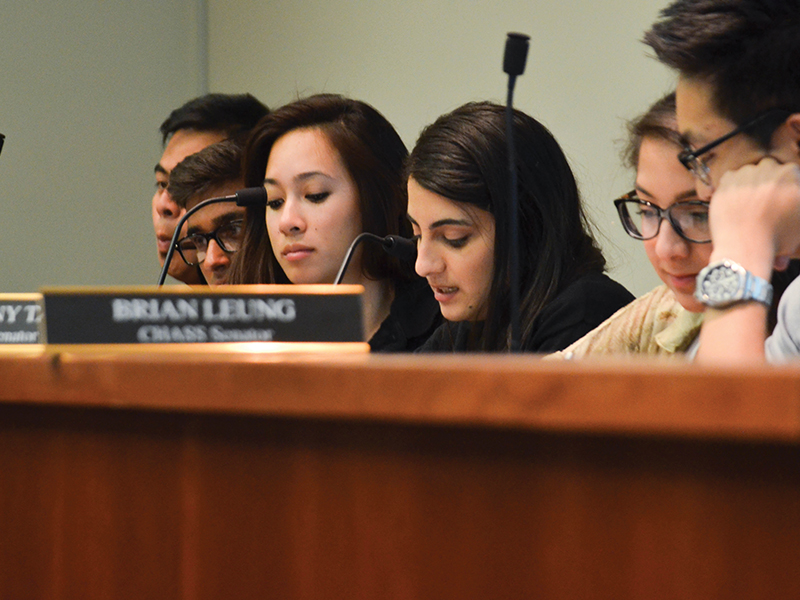
The last official ASUCR Senate meeting of the academic year on Wednesday, May 22 proved to be an emotional farewell. Highlighted topics included BCOE computer lab funding, changes within the office of Campus Internal Affairs and a bylaw that was not approved within the Campus of External Affairs.
At the onset of the meeting, Senator Sean Fahmian motioned for an allotted five minutes to present his report during the special reports period. BCOE Senators Megan Crail and Fahmian announced a proposal to direct a larger portion of the existing UCR student technology fee towards maintaining the BCOE’s computer labs.
But Vice President of External Affairs Lazaro Cardenas said the fee should be dispersed to affect most, if not all students. The senate agreed that allocations would not be further discussed without direct contact from the dean of BCOE.
Two significant changes concerning Campus Internal Affairs took place during subcommittee reports. Current senator and incoming Vice President of Campus of Internal Affairs Johnny Ta revealed that the Academic Affairs Director position was replaced with a paid internship position, now listed on SCOTjobs. ASUCR’s formerly nameless advertising section was also removed from Campus Internal Affairs and is now a separate entity called the Marketing and Promotion Committee. The committee is in charge of communications and updating ASUCR’s website, social media accounts and the director’s bylaws.
As subcommittee reports continued, Vice President of External Affairs Lazaro Cardenas introduced an External Affairs Office bylaw revision that outlined leadership positions for the office’s three main committees: the Student Organization Voter Access Committee (SOVAC), Lobby Corps and Highlander Action. Cardenas also proposed renaming the Chief of Staff position to SOVAC Executive Secretary, but this later spurred conflict throughout the senate.
A notable objection came from Senator Aaron Johnson who, after voting against the bylaw, expressed that the legislation “should’ve been [discussed] in an [Executive Cabinet] meeting or behind closed doors.” Johnson, along with a few other senators, noted that the changes during the meeting appeared to be happening “too fast.” Interestingly, amendments to the bylaw passed, whereas the bylaw itself failed to meet two-thirds senate approval.
When subcommittee reports ended, announcements were made and many senators also took the opportunity to congratulate graduating members and wish them luck.








